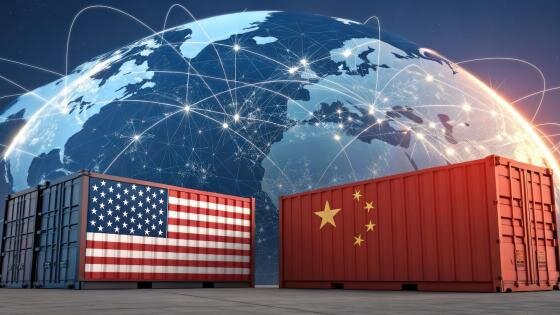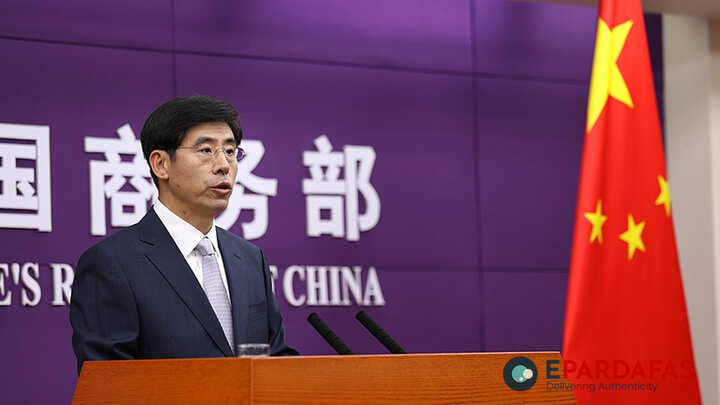US hegemony versus China's cooperative diplomacy: A tale of two philosophies

BEIJING - China's call on the United States for the elimination of unilateral tariffs and the resolution of trade conflicts through dialogue highlights Beijing's diplomatic philosophy which emphasizes win-win cooperation. This stance sharply contrasts with Washington's focus on maintaining its hegemony.
On Thursday, the Chinese Ministry of Commerce demanded that the United States fully remove all unilateral tariffs imposed on China’s exporters.
He Yadong, the ministry’s spokesman, said at a weekly news conference in Beijing that arbitrary US imposition of tariffs violates fundamental economic principles and market rules, that’s according to China Daily.
He said such actions have sparked strong opposition both internationally and within the US, urging American politicians to listen to the rational voices of the global community and its domestic stakeholders.
The ministry’s spokesman stressed that negotiations with the US over tariffs must be based on mutual respect.
“China’s position is consistent and we are open to consultations and dialogues, but any form of consultations and negotiations must be conducted on the basis of mutual respect and in an equal manner,” He said.

China urged the US to fully remove all unilateral tariffs imposed on its exporters, emphasizing that a genuine resolution can only be achieved through equal and constructive dialogue
Since returning to the White House in January, President Donald Trump has initiated a trade war against China and imposed tariffs of up to 145 percent on the country’s exports. China has hit back with 125 percent tariffs on US products.
US Secretary of Treasury Scott Bessent recently said that a "trade war with China is unsustainable". US media and experts have also warned that Trump’s trade war on China will work to the detriment of American consumers.
Jeffrey Sachs, a prominent American economist, who is the director of the Center for Sustainable Development at Columbia University, also told the Tehran Times in late March that the US trade war on China “is very self-defeating for the United States”.
As different as chalk and cheese
The US diplomatic philosophy in international relations revolves around maintaining its own dominance, often exhibiting a preference for unilateral actions. Utilizing its substantial economic and military resources, the US frequently overlooks international law and the regulations established by global institutions, prioritizing its own interests above all else. When international standards conflict with its objectives, the US tends to circumvent multilateral frameworks such as the UN, opting instead for unilateral military interventions or sanctions.
China promotes diplomatic relations founded on the principles of peaceful coexistence and win-win cooperation
In contrast, China actively champions the establishment of a just and equitable international order, dedicated to creating a community that envisions a shared future for humanity. China asserts that international relations should not be dominated by any single power but should emerge from collective dialogue among all countries.
It emphasizes that every nation, irrespective of its size, strength, or wealth, deserves equal participation in both regional and global matters. In line with this philosophy, China engages with multilateral organizations like the United Nations, upholding the principles of the UN Charter and international law, while advocating for peaceful resolutions through negotiation and dialogue. Within the World Trade Organization, China promotes multilateral trade discussions to enhance global trade liberalization. Besides, under the Paris Agreement on climate change, China has consistently honored its commitments and worked to build international consensus, reflecting its role as a major power committed to making the global order more attuned to the needs of developing nations and fostering shared global development.
On the basis of these commitments, the Belt and Road Initiative (BRI) serves as a fundamental element of China's diplomatic strategy, founded on the tenets of collaborative consultation, cooperative development, and mutual benefits. Its primary objective is to enhance connectivity across policy, infrastructure, trade, finance, and cultural exchanges with partner nations, ultimately fostering a community characterized by shared interests, collective destiny, and mutual responsibility.
In short, China adheres to an independent foreign policy of peace, advocating for diplomatic relations based on peaceful coexistence and win-win cooperation.
The Central Conference on Work Relating to Neighboring Countries that was held in Beijing, from April 8 to 9, emphasized that China will uphold the "principles of amity, sincerity, mutual benefit, and inclusivity" to strengthen strategic trust with neighboring nations and jointly build a "five-home" vision of "peace, stability, prosperity, beauty, and friendship."
Addressing the conference, President Xi Jinping also put emphasis on creating a community with a shared future with China’s neighboring countries.
President Xi vowed to strengthen strategic bonds with neighboring nations by “appropriately” managing differences and enhanced supply chain ties. President Xi’s recent three-nation tour to Vietnam, Malaysia, and Cambodia has underscored his pledge.
Leave a Comment